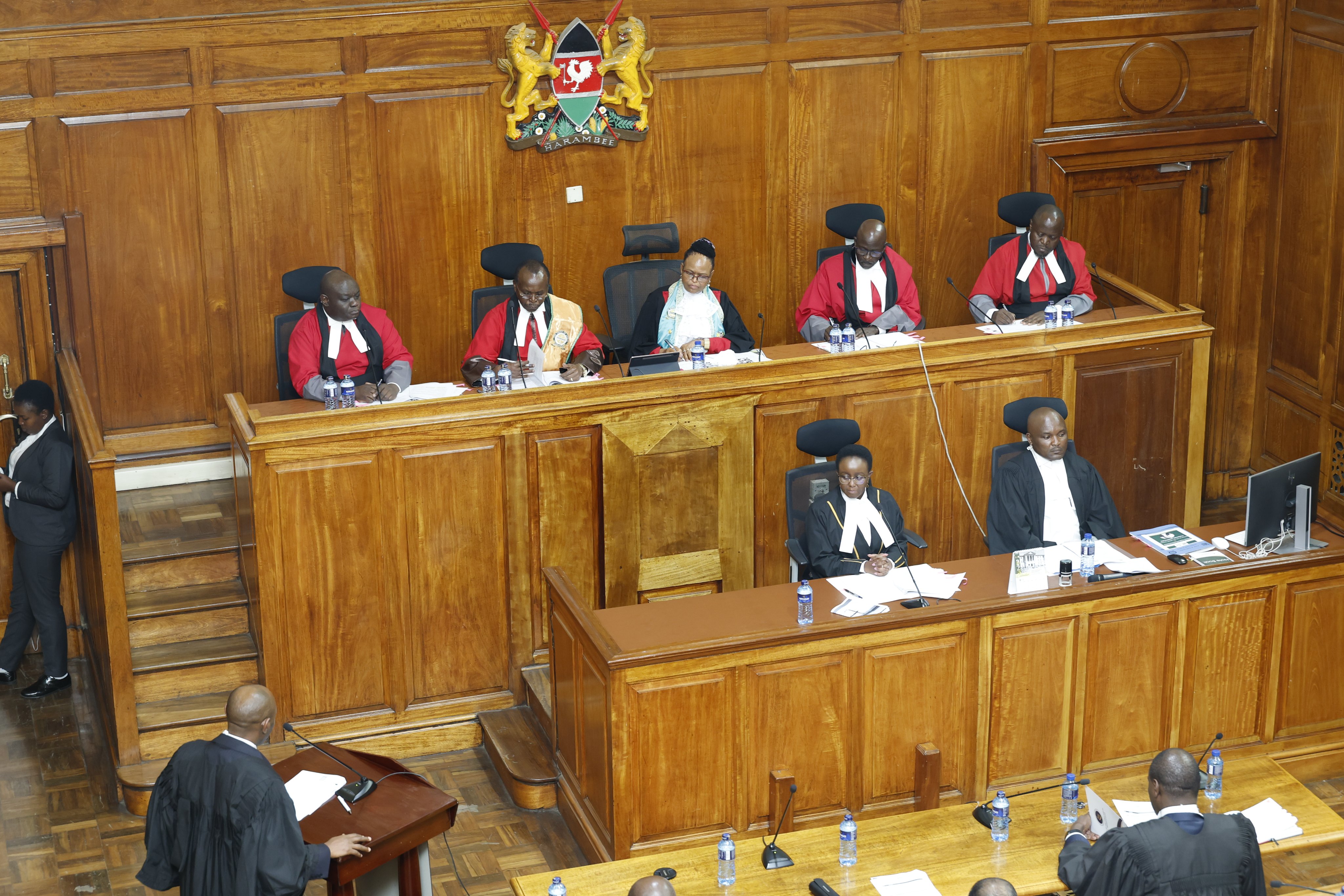
 Supreme Court bench presided over by Chief Justice Martha Koome during the Special Closing File Proceedings in honour of the late Senior Counsel Pheroze Nowrojee, July 9, 2025. /JUDICIARY
Supreme Court bench presided over by Chief Justice Martha Koome during the Special Closing File Proceedings in honour of the late Senior Counsel Pheroze Nowrojee, July 9, 2025. /JUDICIARYThe Supreme Court will take its annual August recess from Friday, August 1, to Monday, September 15, 2025, Chief Justice Martha Koome has announced.
In a gazatte notice dated July 8, Koome said the recess would run for a period of six weeks, both days inclusive.
The CJ stated that this is in alignment with the Constitution, the Supreme Court Act, and the Supreme Court Rules, 2020.
Despite the break, the CJ said the court will remain partially operational, with a duty judge assigned to handle urgent matters that may arise during the recess period.
Koome, who is also the President of the Supreme Court, said the court's Registry will remain open to the public on weekdays, except on public holidays, from 8:30 a.m. to 5:00 p.m.
The recess is part of the Judiciary’s calendar to allow judges time for rest, writing judgments, or handling internal court matters away from the bench.
The Supreme Court is the ultimate interpreter of the Kenyan Constitution, ensuring that all laws and actions by other branches of government are in alignment with constitutional principles.
It hears appeals from the Court of Appeal, typically in cases involving constitutional interpretation or application, or those certified as being of general public importance.
The court also has original and exclusive jurisdiction to hear and determine disputes arising from presidential elections.
Additionally, it may provide advisory opinions on constitutional matters upon request by the national government, a state organ, or a county government.
Its decisions are final and binding on all other courts in Kenya.
However, in exceptional circumstances—such as when a ruling was obtained through fraud or misrepresentation, or when the court lacked the competence to make the decision—the Supreme Court may review its judgments.












